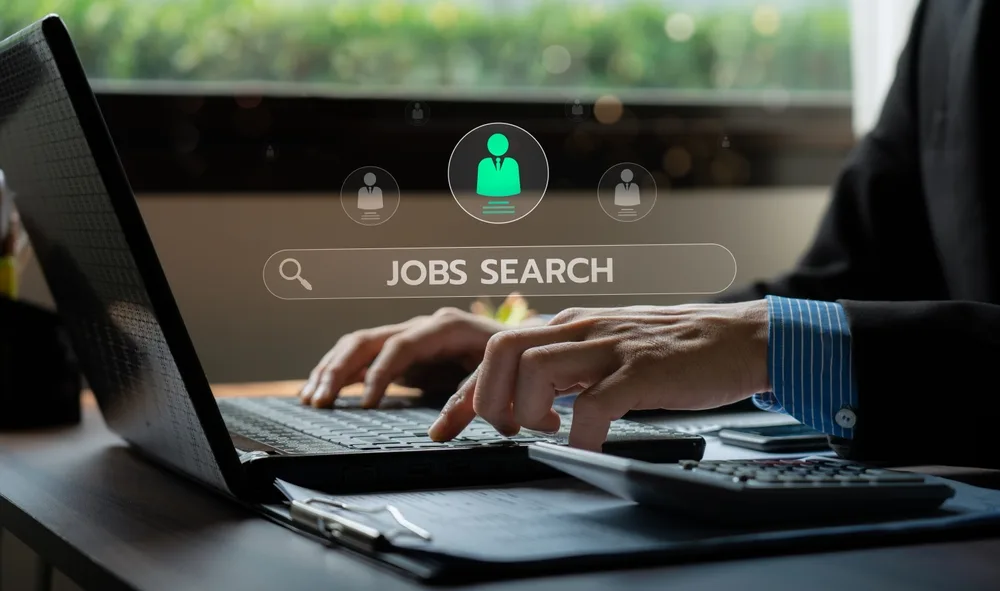
Gig workers were once rare, but working in the gig economy has become more common over the last decade. According to a report published by the Freelancers Union, almost 57 million Americans earn income as gig workers, a significant increase from the 3.7 million gig workers in 2014. In fact, upward trends have the Freelancers Union estimating that up to 50 percent of Americans will be involved in at least some gig labor by 2027.
Working gigs offer many benefits, including more flexible schedules, greater independence, and the ability to be paid what you’re worth. However, gig labor is not without its drawbacks. Gig jobs commonly lack benefits, can be more isolating, and have different taxes than employees. Therefore, understanding the pros and cons of working in the gig economy is just as crucial as knowing how to get started. In this guide, you’ll learn everything you need to know about becoming a gig economy worker, including the gig worker meaning, the advantages and disadvantages of this line of work, what you should know about money and taxes, and how to get started.
What is the Gig Economy Definition?
Just what is the gig worker definition? At a glance, gig workers are self-employed workers, also known as freelancers and contractors, who offer their services to various clients. Clients may be large corporations, small businesses, or everyday people.
Who Are Gig Economy Workers?
Nearly every industry has business that can be provided by gig labor. However, some of the most common fields where gig workers are readily found include:
- Writing and editing
- Web development and design
- Tutoring and teaching
- Virtual assistants
- Graphic design
- Photography
- Accounting and bookkeeping
- Social media managers
- Dog walkers
- Babysitters
- Lawn care and landscaping
Gig workers may take on work as a “side hustle” or as part-time and full-time employment.
The Advantages of Working in the Gig Economy
There are many advantages of working gigs, including:
- More Flexibility: One of the greatest benefits of working gigs is the flexibility that the work provides. It’s not uncommon for workers to be able to set their own hours or work when they want to. Additionally, many gig workers work from the comfort of their own homes, cutting down on commute times and gaining the flexibility to make time for other things in their personal lives. Additionally, gig workers can generally take off any time they need.
- Greater Independence: Most gig workers experience an independence that many employees don’t. Generally, workers don’t work in an office and no one is standing over their shoulder. In many cases, gig workers get to be their own boss, and many enjoy set deadlines rather than set working hours.
- Get Paid What You’re Worth: Pay for gig labor is very different than traditional employment. In some cases, workers can make a greater income than they would as an employee. Generally, you get to set your price for the services you offer and the time it takes you to complete tasks.
- High Demand: The gig economy is competitive, but there is a high and increasing demand for workers. It’s becoming more common for employers to hire a team of freelancers opposed to employees, as it can be more cost-effective since they don’t need to pay office expenses or employee benefits.
- You Pick and Choose Your Clients: As a gig worker, you’ll be able to pick and choose the clients you want to work with. That means you can forgo difficult employers and, since you can have more than one client, you can stop working with a particular difficult client should the need arise.
The Disadvantages of Gig Labor
While there are many benefits to working in the gig economy, working gigs is not without its disadvantages. As a freelancer, you may experience common drawbacks like:
- Lack of Benefits: Most gig workers do not receive the same benefits as employees, if they receive any benefits at all beyond a paycheck. It’s uncommon for these workers to receive employee benefits like health insurance, retirement plan, and career advancements with an individual client.
- Changes in Taxes: Taxes are different and often higher when working in the gig economy. When you work for an employer, taxes are automatically deducted from your pay. However, as a gig worker, you have to plan accordingly for your taxes. While the IRS gives you the option of paying your taxes quarterly, your tax brackets will be higher. In fact, most gig workers can expect to pay between 25 and 30 percent of their income to taxes. Additionally, you’ll need to track all of the purchases you make for your job to get the most out of tax deductions, such as office supplies and health insurance costs.
- Isolation: One of the benefits (or disadvantages) of working as an employee is the environment. Working in an office offers chances to socialize amongst your peers and management. However, the same cannot be said for gig workers. Most workers spend their workdays alone and may work from home or a remote site. For some workers, this can lead to feelings of isolation.
- Unsteady Employment: Working gigs is not always steady. You may work for multiple clients at once or start and end work with a client unexpectedly. Additionally, you are generally not eligible for unemployment if you lose your job. For many workers, this can create additional stress and job insecurity.
How to Find Gig Economy Job Offers
Getting started working in the gig economy is not as difficult as you might think. However, these are competitive fields and there are many workers who strive to become self-employed. Before you get started, there are several things you’ll need to decide on, including:
- What Service You’ll Offer: Deciding on the services you intend to offer is the first step in finding work. Consider your experience, skills, education, and qualifications when choosing the industry you’d like to work in and the services you’ll offer.
- The Rates You’ll Charge for Your Services: The rates you charge will determine your income working gigs. How do you want to be paid, how frequently, and how much will your services be? Setting the right rate is one of the key aspects of attracting clients. If your rate is too high, clients may choose a different worker. If they’re too low, you may not be paid your worth. The rates you’ll charge should also be determined by the type of service you offered. The more inclusive the service, the higher your rates can be since there will be less competition in your field. You may also decide on a flexible or negotiable rate.
- Whether or Not You Need an Online Portfolio: Some gig workers need an online portfolio to attract new clients. Online portfolios are a way to showcase your best work so that employers know what they can expect if they hire you. Common industries where online portfolios may be helpful include writing, graphic design, web design, and other creative industries.
Once you’re prepared to take on gig labor, you’ll need to find work. Fortunately, you can find work in many of the same places as you can find employment. For example, you can attend local job fairs or apply for work on popular job boards, like Indeed, ZipRecruiter, Glassdoor, and Monster. Additionally, you can apply directly with a company that you’re interested in performing services for. If you intend to work in fields like dog care or babysitting, there are online platforms that can help you find clients, such as Wag, Rover, and other websites.
What You Should Know Before Working in the Gig Economy
There are several things you should know before you begin working in the gig economy, including:
How to Find Health Insurance: Because most gig workers are not provided employee benefits like health insurance, you’ll need to know how to acquire it. Health insurance is essential to finding affordable healthcare and financially protects you in an emergency. One of the best ways to find health insurance is through your state’s Health Insurance Marketplace. Additionally, you can acquire insurance through private insurance companies. If you’re disabled or a senior, you may qualify for Medicare. If you have a limited income, you could potentially qualify for your state Medicaid program.
You Will Get Rejected: Gig workers are commonly rejected because the industry is so competitive, especially when you’re first starting out. Getting your foot in the door is generally one of the largest obstacles you’ll face. Don’t get discouraged. Be persistent, and continue submitting applications, and the work will eventually come.
You Need to Hold Yourself Accountable: One of the most important factors to your success working gigs is to hold yourself accountable. It’s crucial that you meet deadlines and perform the work quality that your clients expect.
It’s Best to Start While You’re Employed: Because it can be difficult to get your foot in the door or build your clientele, it’s best to start while you’re still employed. Doing so will give you more time to build up gig work and ensure that you meet all of your monthly expenses until you can support yourself working gigs.







